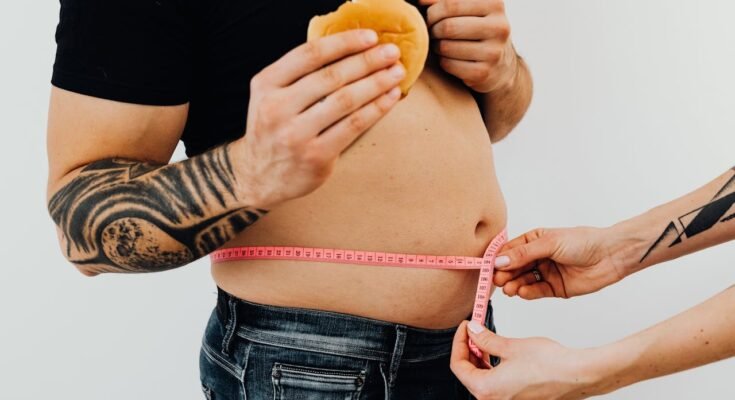Weight loss is a journey which almost everyone embarks on at some stage or another along with the perception of improving overall health, energy, and confidence. While weight loss could have a wide impact on both emotional and physical well-being, it is essential to take up healthy and sustainable strategies while addressing weight loss problems. In this respect, open discussions about the effective methods of weight loss involving soft foods have garnered attention. But how do soft foods really enter into the scheme of things about weight loss, and why are they important? This article will discuss the issue of weight loss against soft foods, while discussing the various advantages of soft food diets and its inclusion in servings.
Basics of Weight Loss: Get Informed
Before looking at the role of soft food in weight loss, it is necessary to understand the basic elements of weight loss. Weight loss or weight loss occurs when the body tends to burn more calories than it consumed. Such a state is termed calorie deficit. Most weight-loss diets, including the diet-and-exercise approach, which involves cutting certain calories from such foods and increasing physical activity to burn calories, are based on this premise.
For weight loss to be successful and permanent, a combination of balanced nutrition, regular physical exercise, and lifestyle change is required. Taking these extreme risks quickly results in the loss of lasting weight and could be unhealthy: an extreme restriction of calories or evading whole food groups. Balanced nutrition giving enough nutrients and energy to sustain the body during the process of weight loss is of prime importance.
What are soft foods?
Soft foods are foodstuffs that are soft and easily chewed. Soft food has almost a water or fluid consistency and, in other words, it’s gentle on the stomach. It can both be nutritious and sustaining and is usually recommended to those who have difficulty in chewing and swallowing. Soft foods are usually meant for postoperative patients, people with dental issues, and people with other medical problems.
Soft foods have low to average fiber, which is what a person who tends to bloat or is uncomfortable with some food choices requires. They are lower in fat and slightly moist to digest and consequently feed into the body nutrients easier.
Some soft food complement each other very well in texture and flavor.
Examples of soft foods include:
- mashed vegetables; potatoes, carrots, sweet potatoes
- cooked fruits, such as applesauce or poached pear
- soft scrambled eggs
- yogurt or cottage cheese
- smooth soups and broths
- oatmeal or porridge
- tender meats such as chicken or fish cooked in sauces or broths
- smoothies and protein shakes
- soft, cooked grains: quinoa or rice
In short, adding soft foods to your regular diet brings relief, filling comfort, and a steady weight loss that does not sacrifice nutrition.
Soft foods help you lose weight
While weight loss involves cutting down on calorie intake, the quality of food that you eat is equally relevant. Soft foods help lose weight by:
1.Reducing Caloric Intake: Soft foods, especially those with high water content (like soups or cooked fruits and vegetables), can help fill you with fewer calories. Through this means, it controls the portion size of the served meal, which is considered as one of the determinants of successful weight loss.
2.Improvement in Digestion: Soft foods do good on the digestive system and are hence valuable for individuals suffering from digestive discomfort, including bloating, acid reflux, or constipation. Improved and smooth digestion allows for the most efficient absorption of nutrients by the body. Consequently, individuals may experience less discomfort and continue with their weight loss plans.
3.Increased Satiation: Many soft foods are moist, which brings fullness. Foods like soup, stews, or blended smoothies may offer fullness without pronouncing a curse on various foods you’d ordinarily scorch with that, creating a dent in inner reserves. Satiation can be enhanced further by including a variety of soft foods rich in protein or fiber, some examples being yogurt, cottage cheese, or even beans.
4.Teeth and Gums Will Not Suffer: Soft foods are of great aid to people with dental problems or coming out of surgery. Being able to eat in comfort without fear of aggravating tender teeth or gums makes sticking to a healthy diet easier. Thus, the process of losing weight becomes greatly facilitated when harder foods, like raw vegetables, nuts, or whole grains, are tough to chew.
5.Better Nutrient Absorption: Soft foods, which include pureed apples and pears, allow your body to absorb vitamins, minerals, and other vital nutrients more easily. The soft-textured foods require less work on the part of your system to properly digest for those who experience some digestive trouble, ensuring that nutrition will be properly achieved in the process of weight loss.
Soft Foods That Promote Weight Loss
So far, you have learned about the benefits of soft foods for weight loss, so now we can explore the finest soft foods you are likely to include in your diet in order to attain maximal weight loss.
1.Vegetables: For soft food, the best options are cooked or mashed vegetables like spinach, carrots, sweet potatoes, and zucchini. These provide vitamins, minerals, and fiber, which help improve health overall. You can also choose steamed or mashed broccoli and cauliflower, both of which can be very easy to digest because of their soft texture and at the same time, help in maintaining low calories.
2.Fruit: Soft fruits, such as bananas, pears, applesauce, and berries, are ideal for snacks and breakfasts. They are also extremely low in calories but high in fiber, so they will keep you feeling full and satisfied. You can fit a great deal of nutrition into your diet while keeping it easy to digest by making smoothies with softened fruit, protein powder, and leafy greens.
3.Eggs: Soft-boiled or scrambled eggs are also very rich in protein, an essential nutrient that helps to preserve an individual’s muscles while losing weight. They’re easy to cook, and mixing these with soft veggies can give you a full-density meal that favors weight management.
4.Yogurt and Cottage Cheese: These two are very rich in protein and calcium. Low-fat or non-fat versions should be preferred, as they will help keep the calorific value lower. Either yogurt or cottage cheese can be consumed plain, or you can even mix in some fruits, nuts, or honey for added taste.
5.Soups and Broths: Soup made of vegetables, lean meats, and broth is very effective in weight loss. They are very hydrating and quite filling and are easy to digest. When proteins are included in soups, like chicken or lentils, they may sustain energy for the day and also help in efforts to reduce weight.
6.Lean Meats and Fish: Soft, lean protein like turkey, chicken, and fish-high in omega-3 fatty acids such as salmon or tilapia-works great for weight loss. They are easily digestible and will replenish energy due to the presence of omega-3 fatty acids, which may cause some fat loss.
7.Oatmeal and Porridge: Sigh! Ah! The warmth of oatmeal, or a porridge breakfast, is oh-so-comforting and filling. These grains are very high in fiber and, in particular, soluble fiber, which helps to keep blood sugar balanced and lets one feel full between meals.
8.Smoothies and Protein Shakes: Combine various fruits and veggies and some protein powder into a super-smooth smoothie that acts as a multivitamin supplement. A quick nutritious meal to grab and go!
Some Practical Tips for Including Soft Foods in Your Weight Loss Diet
And for the best results when eating soft foods to lose weight, here are some practical tips:
Plan Your Meals: It is particularly difficult to integrate soft foods into your daily routine when you don’t plan. It is a good idea to plan meals and snacks in advance for easy access to soft, healthy food.
Choose Nutrient-Dense Soft Foods: Make sure whatever soft foods you choose are not just easy to digest, but are also packed with vitamins, minerals, and protein. This will nourish your body as it works toward weight loss.
Offer Variety: Though soft foods are easy on the tummy, providing variety in your meals is necessary. Try rotating fruits, veggies, proteins, and grains with soft meal options so you get a myriad of nutrition from your soft foods.
Mind Portion Sizes: Soft foods might seem filling with their moist texture. But beware of the portions: while certain foods might be lower in calories, eating them in excess still leads to a calories surplus that can hinder weight loss.
Stay Hydrated: Many soft foods are rich in water content, which, in turn, helps with hydration. However, it is necessary also to drink enough water during the day for hydration. Drinking water before meals may also help to control portions because you might feel a bit fuller.
The concluding thoughts
Using soft foods in your weight loss diet can be an aid and comfortable way of reaching this goal. These foods can facilitate digestion, provide fullness, and supply vital nutrients that your body needs as you lose weight. Select soft, nutrient-dense options that yield a balanced, enjoyable diet to support your weight loss and overall health goals. Most importantly, remember that weight loss is a journey that requires patience and consistency and must focus on making healthy, sustainable changes.



